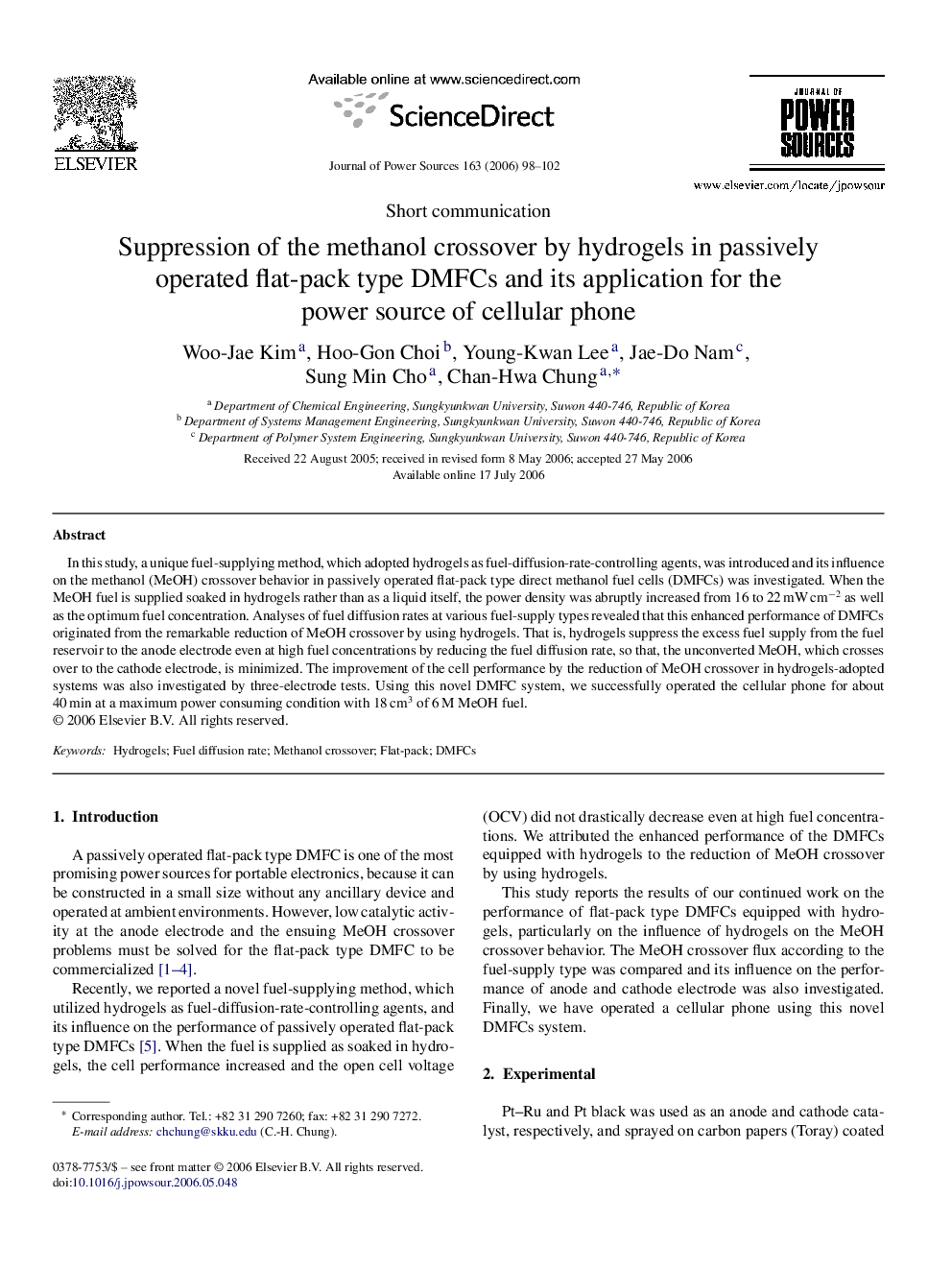| Article ID | Journal | Published Year | Pages | File Type |
|---|---|---|---|---|
| 1291058 | Journal of Power Sources | 2006 | 5 Pages |
In this study, a unique fuel-supplying method, which adopted hydrogels as fuel-diffusion-rate-controlling agents, was introduced and its influence on the methanol (MeOH) crossover behavior in passively operated flat-pack type direct methanol fuel cells (DMFCs) was investigated. When the MeOH fuel is supplied soaked in hydrogels rather than as a liquid itself, the power density was abruptly increased from 16 to 22 mW cm−2 as well as the optimum fuel concentration. Analyses of fuel diffusion rates at various fuel-supply types revealed that this enhanced performance of DMFCs originated from the remarkable reduction of MeOH crossover by using hydrogels. That is, hydrogels suppress the excess fuel supply from the fuel reservoir to the anode electrode even at high fuel concentrations by reducing the fuel diffusion rate, so that, the unconverted MeOH, which crosses over to the cathode electrode, is minimized. The improvement of the cell performance by the reduction of MeOH crossover in hydrogels-adopted systems was also investigated by three-electrode tests. Using this novel DMFC system, we successfully operated the cellular phone for about 40 min at a maximum power consuming condition with 18 cm3 of 6 M MeOH fuel.
